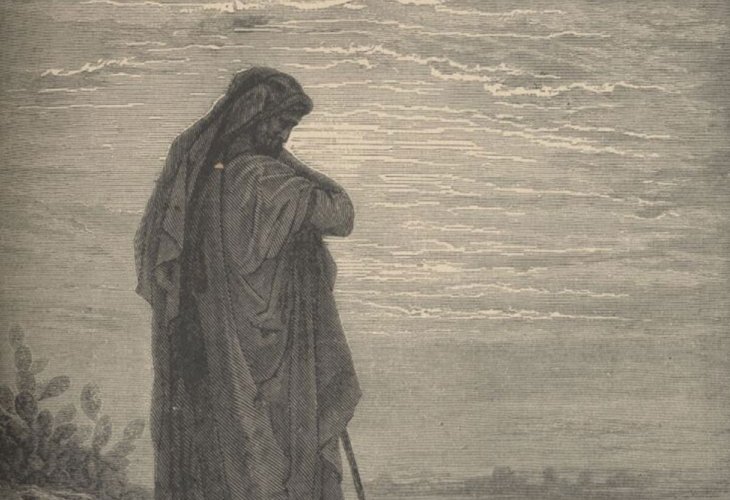Torah Personalities
Amos the Shepherd-Prophet: A Voice of Justice from Tekoa
A wealthy farmer turned prophet, Amos called out injustice and idolatry across nations, offering a timeless vision of repentance, righteousness, and redemption.
 Illustration
IllustrationA Prophet from the Fields of Tekoa
Amos was one of the Twelve Minor Prophets, and his teachings are preserved in the Book of Amos. A native of Tekoa in the territory of the Tribe of Asher, Amos was from the tribe of Asher and received his prophetic tradition from Hoshea ben Beeri. His name, according to tradition, refers to a speech impediment, “amos bilshono”, or “heavy of speech” (Vayikra Rabbah 10:2).
He prophesied during the reigns of Uzziah, king of Judah, and Yeravam the son of Yoash of Israel, “two years before the earthquake.” His contemporaries included Hoshea, Yeshayahu, and Michah, though Amos was the youngest of the group (Pesachim 87a).
Amos was a wealthy man who raised sycamore figs (Amos 7:14) and tended sheep. The Midrash (Tanchuma) explains that just as David was tested while tending sheep, so too was Amos, as it says: “Hashem took me from following the flock and said to me: Go, prophesy to My people Israel” (Amos 7:15).
A Call for Justice Beyond Borders
Despite his prosperity, Amos did not shy away from rebuking both kingdoms. He criticized Judah for forsaking the Torah and Israel for social injustice. He warned that their sacrifices and rituals were meaningless while oppression and corruption prevailed. Though Israel enjoyed peace and comfort at the time, Amos warned that this calm was temporary; foreign nations would soon rise against them and reclaim the lands they had taken.
Amos’s message extended beyond Israel and Judah. He prophesied about the imminent downfall of the surrounding nations of Damascus, Gaza, Tyre, Edom, Ammon, and Moab, and condemned each one for its violence and cruelty. His was a vision of Divine justice applied equally across all peoples.
One of his most enduring calls was: “Seek Me and live,” a plea for Israel to pursue Hashem instead of false gods and to uphold justice instead of injustice.
A Vision for the End of Days
Among his most famous prophecies is a powerful spiritual forecast:
“Behold, days are coming, declares Hashem… when I will send a famine in the land, not a hunger for bread, nor a thirst for water, but for hearing the words of Hashem.” (Amos 8:11)
This prophecy is seen by many as a reflection of our own era that is marked by a growing thirst for spirituality, Torah, and meaning. The hunger for Hashem’s word is not a fleeting phenomenon but a sign of the soul of the Jewish people awakening. It is a prelude to redemption, evidence that the dream of generations is within reach.
According to tradition, the tomb of Amos still stands near Tekoa. Along with the tomb of Yeshayahu, it is one of the only First Temple-period graves in Judah attributed to biblical prophets.

